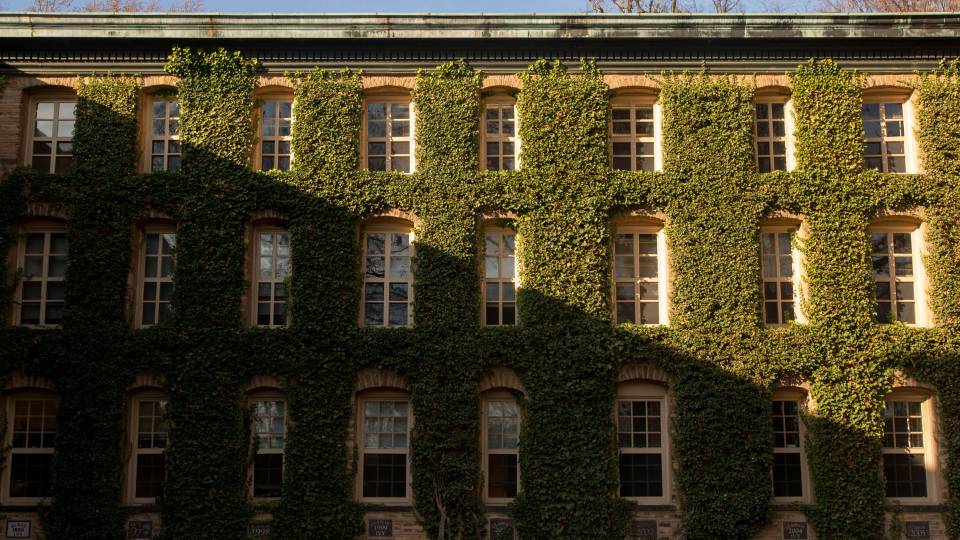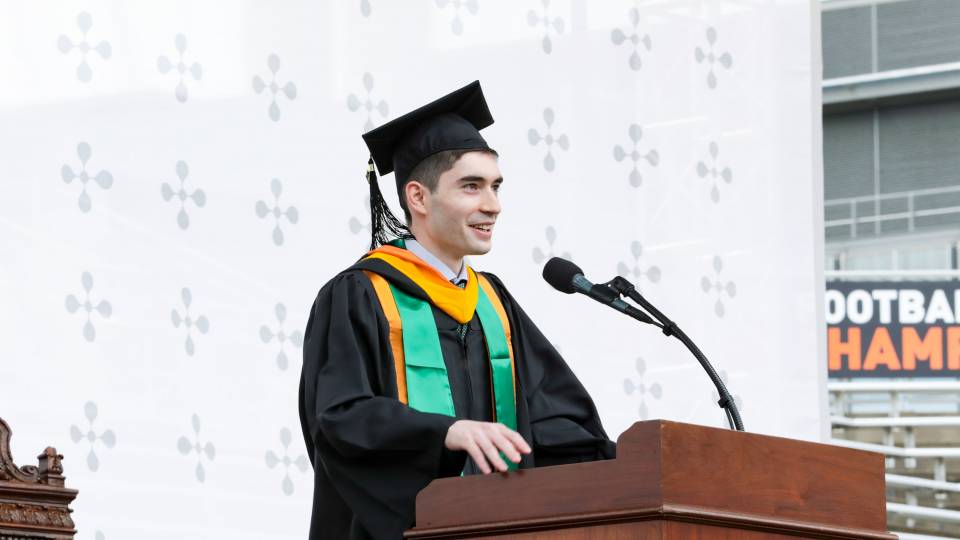For more information on Princeton's response to the tragedy, click here .
Princeton University responded to Tuesday's terrorist attacks on the United States with prayer, support and activities meant to help the community understand the tragic events.
President Shirley M. Tilghman told freshmen at a previously planned class gathering in Richardson Auditorium that the University would adhere to its regular schedule this week to demonstrate that terrorism will not stand in the way of higher education.
"What has transpired today is antithetical to everything we stand for in the academy -- respect for others, solving differences through human discourse," she said. "We will get on with the business of education."
She said the University's priorities are to come together as a community, to defeat the intent of the terrorists to "paralyze us into inactivity" and to achieve an individual and collective understanding of what happened.
Rather than having the planned presentation on diversity, the freshmen listened to a brief talk by Fred Hitz, a faculty member and scholar in the field of international terrorism, then returned to their residential colleges for discussion groups.
"We need to think about what could have produced the frustrations that caused these crimes," said Hitz, director of the project on international intelligence at the Woodrow Wilson School's Center of International Studies. "To have that kind of hatred is a phenomenon we will have to try to understand."
At a candlelight vigil sponsored by the Office of Religious Life Tuesday evening, hundreds of students, faculty and staff came together in McCosh courtyard to pray, observe moments of silence and sing.
"We gather to share our shock and sorrow, our grief and fear and our outrage and confusion," said Sue Anne Steffey Morrow, associate dean of religious life. "We gather to pray for strength and courage that we might be channels for peace and understanding."
More than 200 people gathered Tuesday afternoon at a "town meeting" in Robertson Hall, where a faculty panel assembled by the Woodrow Wilson School of Public and International Affairs explored the emotional, moral and political implications of the tragic events.
Emeritus Professor Robert Gilpin, who was in the audience, captured the magnitude of the occasion: "I think this day will always be etched in your minds, whatever your politics are. The world was never the same after Pearl Harbor; it was never the same after the Kennedy assassination. This country will never be the same after this day."
Several professors were emphatic when they warned that Americans cannot let the emotions evoked by such unspeakable acts lead them to abandon caution and reason.
"There is a terrible and understandable desire to find and punish whoever was responsible for this," said Woodrow Wilson School Dean Michael Rothschild. "But as we think about it, it's very important for Americans to think about our own history, what we did in World War II to Japanese citizens by interning them."
Emeritus Professor Richard Falk told the packed auditorium that "democracies, because they have a sense of self-pride and moral consciousness, can often act without restraint and be destructive of the values they are trying to promote. The thinking is to find the perpetrators and engage in a military response and feel that that solves something. But there needs to be an understanding of why this kind of suicidal violence could be undertaken against our country."
The U.S. foreign policy team is a group of cool, disciplined professionals well-suited to dealing with a major crisis, said Robert Hutchings, an assistant dean at the Woodrow Wilson School and a former director for European affairs with the National Security Council. But a crisis such as this one can be particularly dangerous when it comes early in a president's first term, he said because there can be a "tendency to rush for a premature consensus."
The manner in which the government decides to respond will say a great deal about the kind of country we are, said Hitz, who participated in the town meeting before talking to the freshmen. "If this terrorist act, in addition to shocking us, also scares us, causes us to pull back into our shell, then the terrorists will have succeeded," he said.
Contact: Marilyn Marks (609) 258-3601

